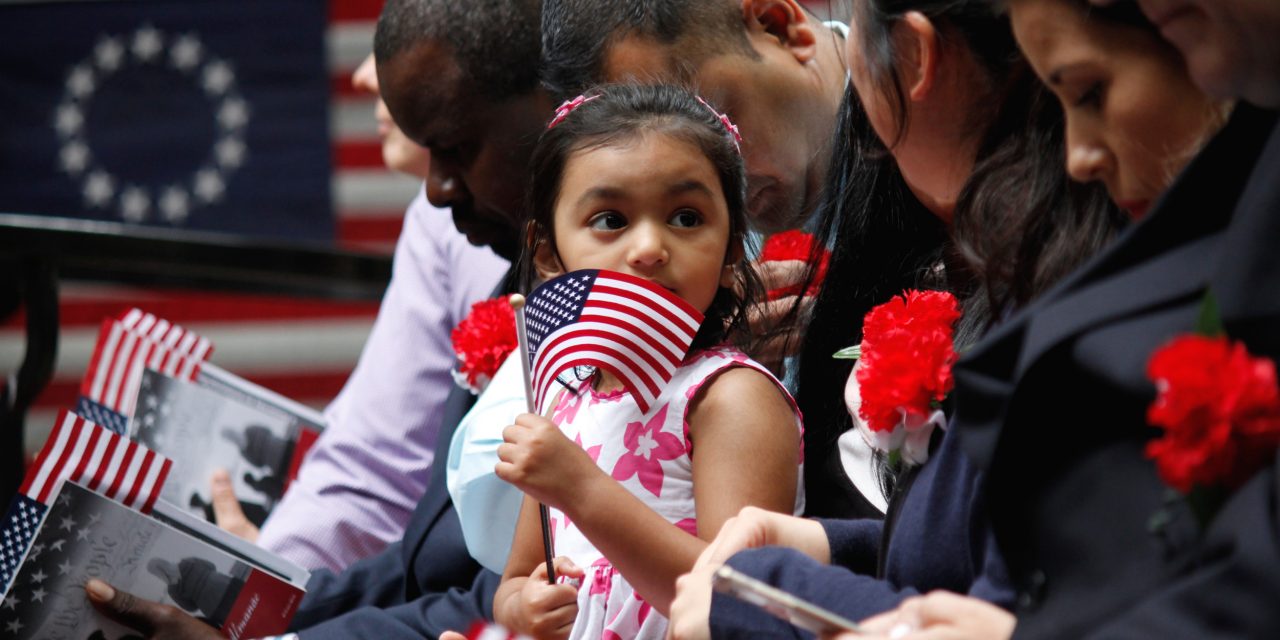When people who immigrate to the United States are enabled to become U.S. citizens, everyone benefits. Citizenship allows people to have more stable lives by granting access to better work, housing, health care, and education. This leads to a stronger, safer, and more prosperous country for foreign- and native-born Americans alike.
Yet the Trump administration continues to make the citizenship application process—called “naturalization”—more difficult for those wanting to become citizens.
A new report from the Center for Migration Studies (CMS) advocates for returning to our centuries-old immigration system that encourages and incentivizes becoming a naturalized U.S. citizen.
In order to do this, CMS suggests several solutions:
1. Lower the Cost of Applying for Citizenship
U.S Citizenship and Immigration Services (USCIS) could lower their fees for naturalization applications and allow for fee waivers in a case-by-case basis.
The current cost of an application is a steep $725, but USCIS recently proposed hiking it to $1,170. This may prohibit many people—including young and low-income immigrants—from applying to become a citizen.
2. Decrease the Backlog of Pending Citizenship Applications
Congress could appropriate funds to reduce the backlog of naturalization applications.
As of September 2019, nearly 740,000 applications were pending. Processing times had risen to over 10 months. This is double the amount of time it took USCIS to decide on an application in 2016.
Part of the issue stems from USCIS’ decision to spend resources combing through thousands of old citizenship applications for any signs of fraud. This comes at the expense of working on more recent applications.
At the current rate, CMS estimates that it would take 25 years to lower the backlog to its 2015 size, just over 380,000 applications.
3. Reestablish Immigration Enforcement Priorities
CMS argues that the Department of Homeland Security should reestablish its priorities for enforcement. During previous administrations, immigration enforcement was primarily focused on removing those with criminal records.
Now, more and more people are finding themselves detained and deported for minor and non-violent offenses. This creates a culture of fear among noncitizens that makes people afraid to apply for legal status and benefits for which they are eligible.
By reestablishing commonsense enforcement priorities, people would be encouraged to come forward and apply for green cards and citizenship.
The United States should be helping people become citizens—not forcing them into a limbo that prevents full participation in the strengthening of American communities.
FILED UNDER: Center for Migration Studies, cost of citizenship, USCIS


